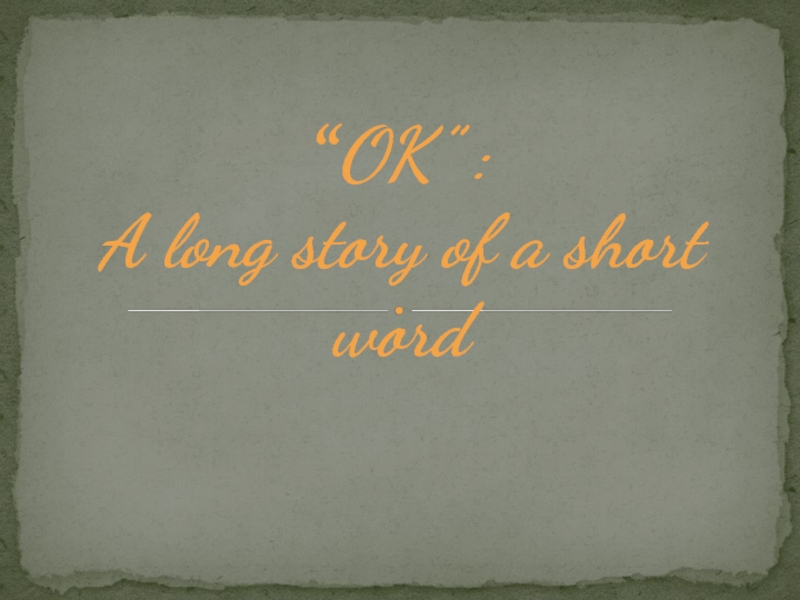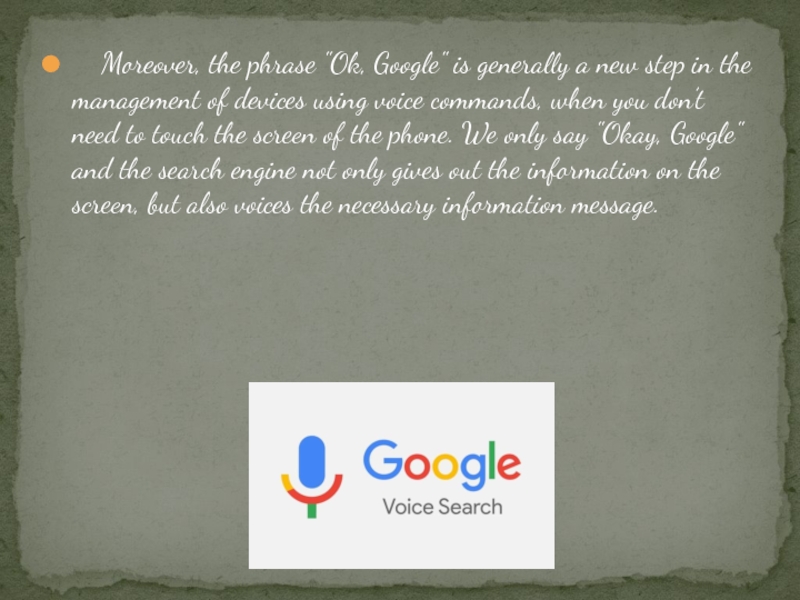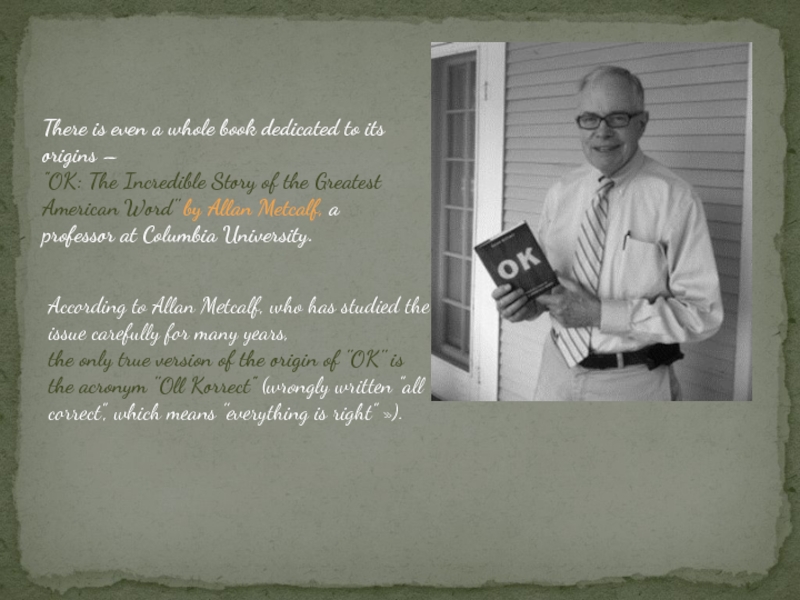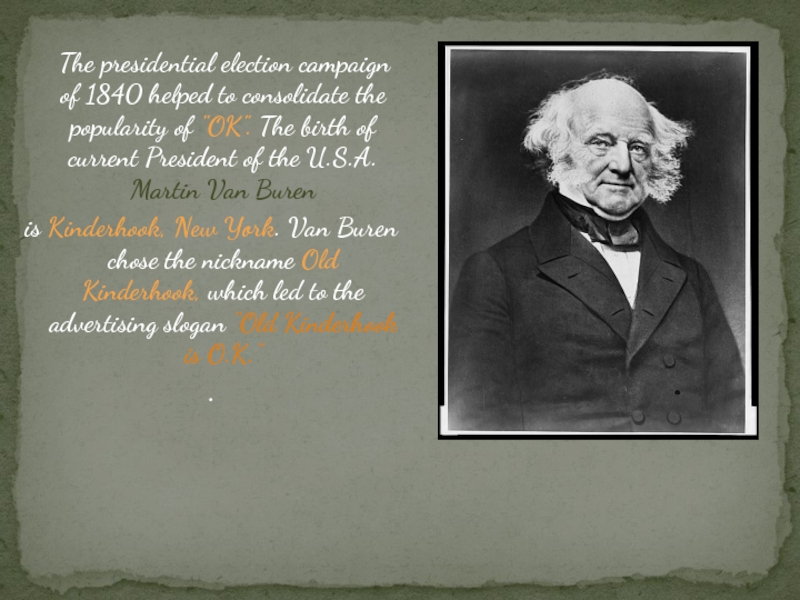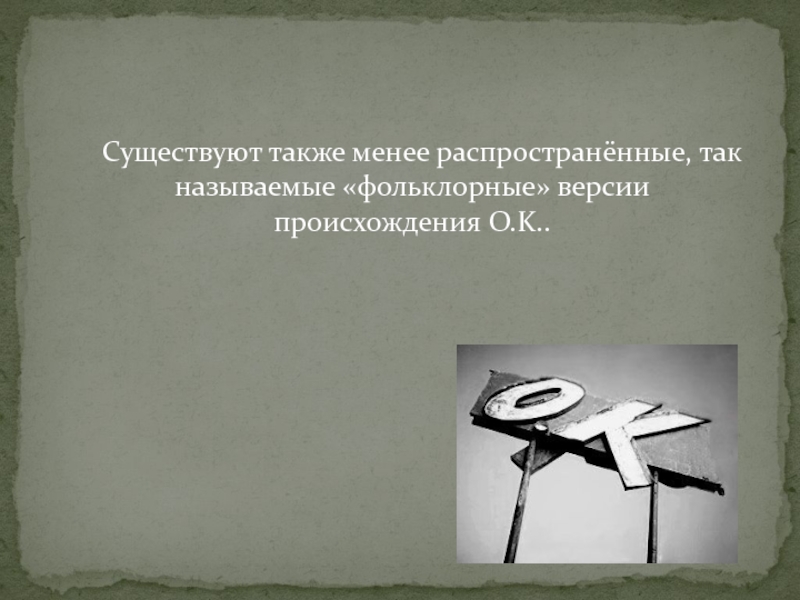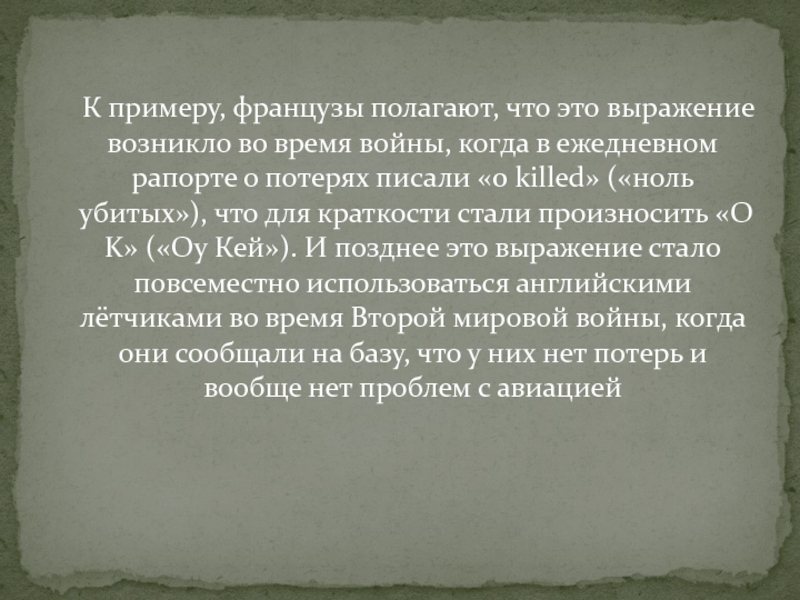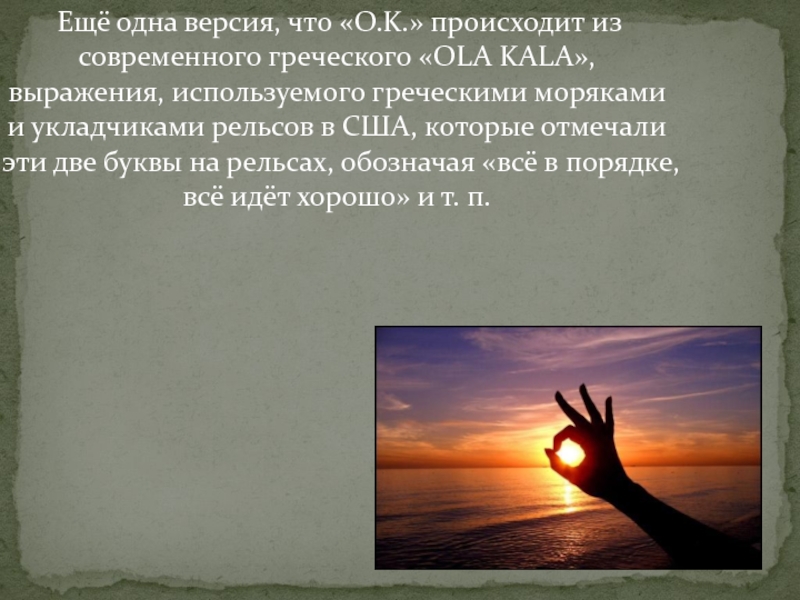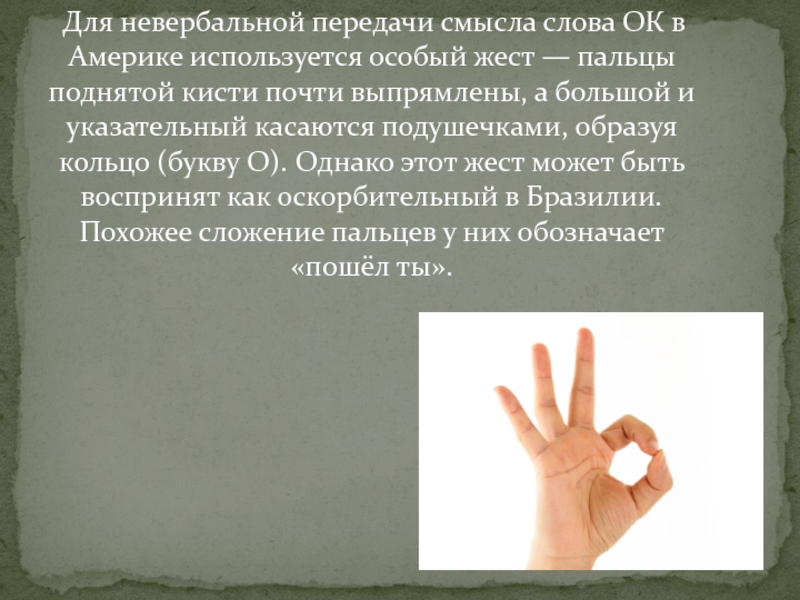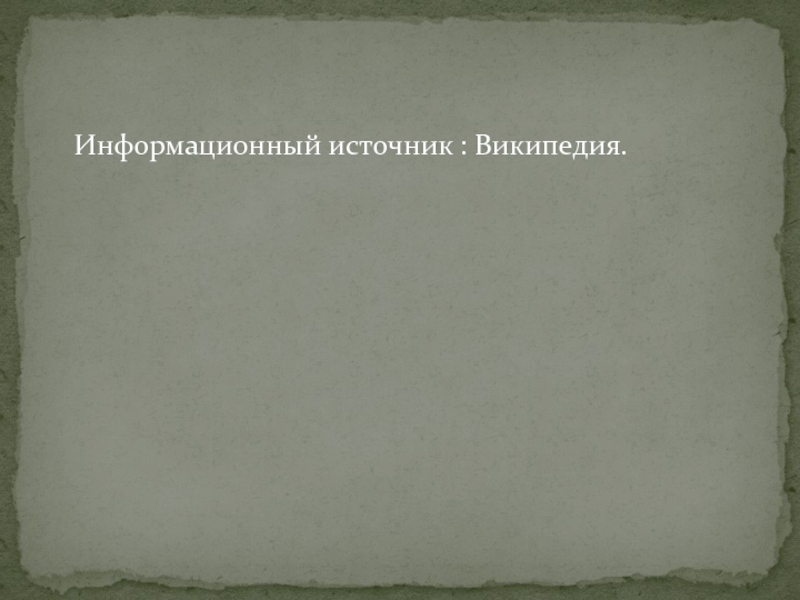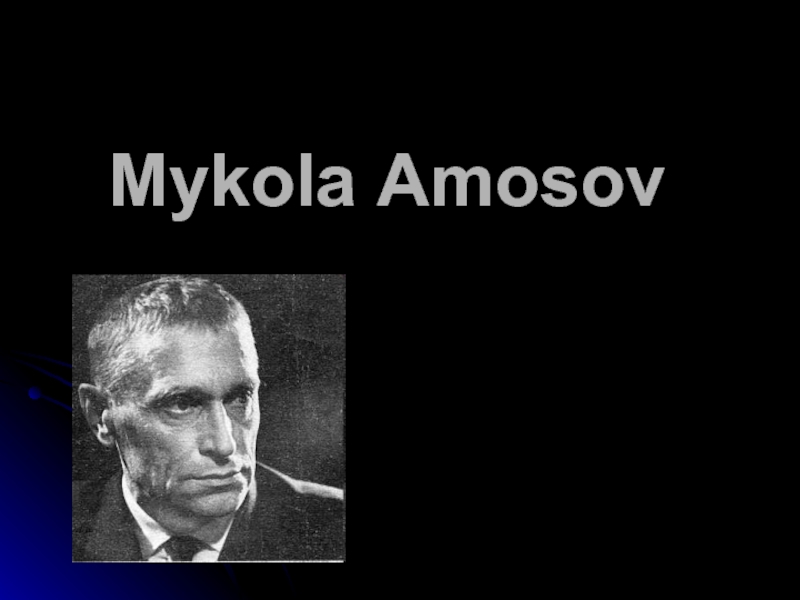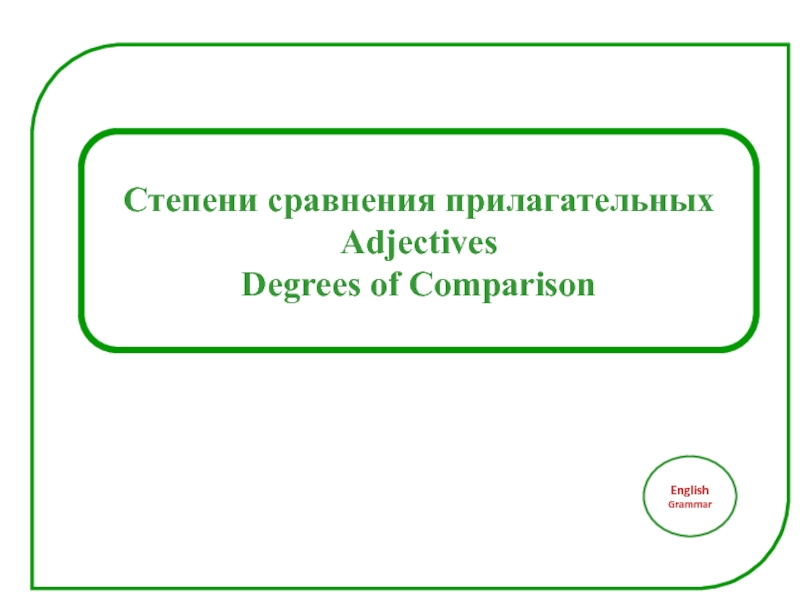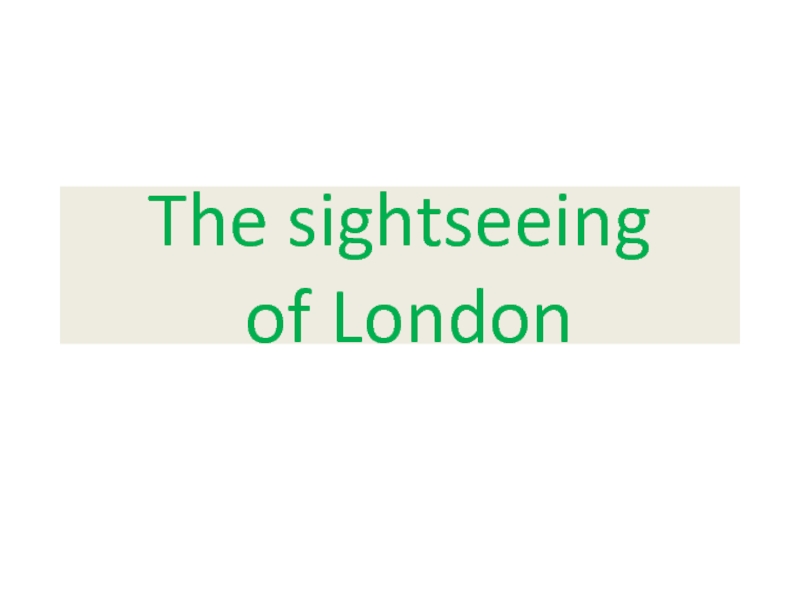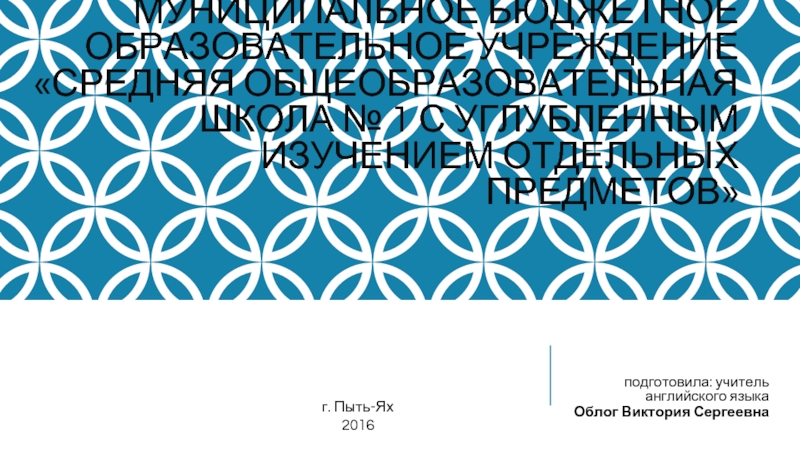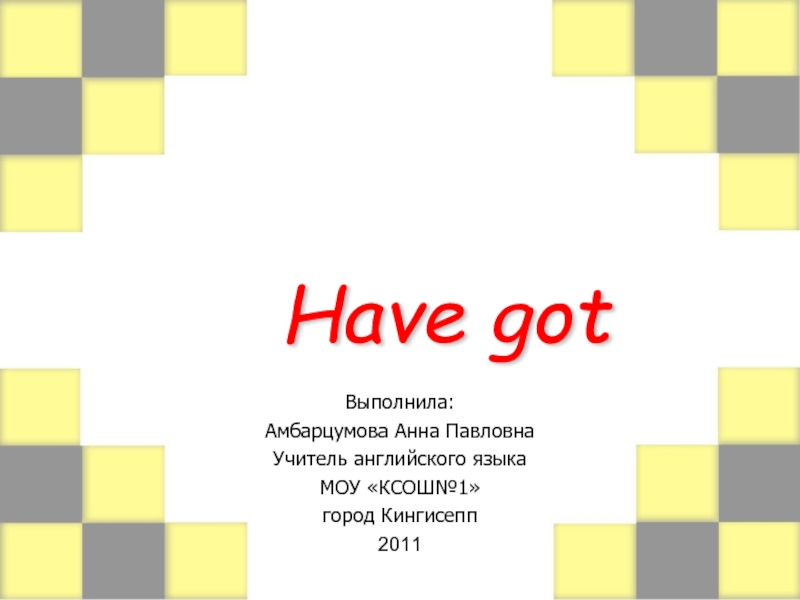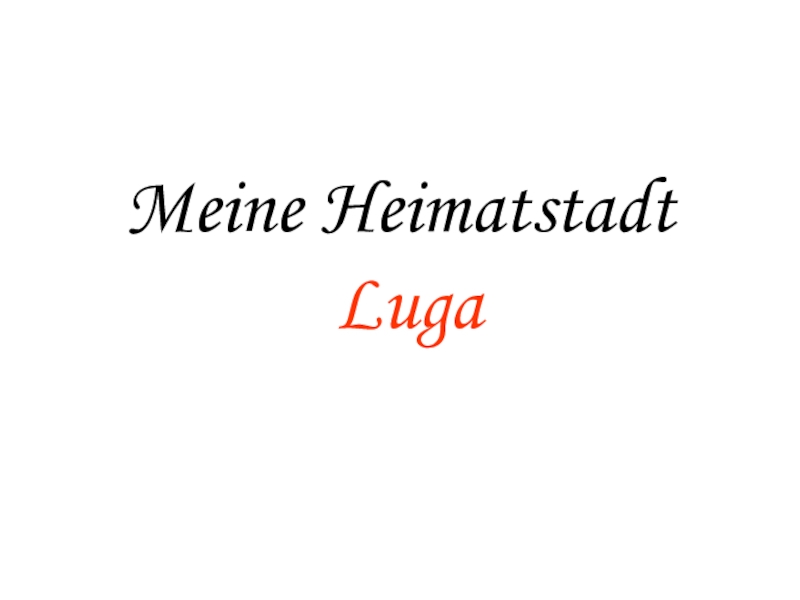Разделы презентаций
- Разное
- Английский язык
- Астрономия
- Алгебра
- Биология
- География
- Геометрия
- Детские презентации
- Информатика
- История
- Литература
- Математика
- Медицина
- Менеджмент
- Музыка
- МХК
- Немецкий язык
- ОБЖ
- Обществознание
- Окружающий мир
- Педагогика
- Русский язык
- Технология
- Физика
- Философия
- Химия
- Шаблоны, картинки для презентаций
- Экология
- Экономика
- Юриспруденция
A long story of a short word
Содержание
- 1. A long story of a short word
- 2. The abbreviation "OK" is now used virtually
- 3. Moreover, the phrase "Ok, Google"
- 4. So where did this
- 5. There is even a whole book dedicated
- 6. The presidential election campaign of
- 7. Among other popular versions
- 8. There is also a version
- 9. Существуют также менее распространённые, так называемые «фольклорные» версии происхождения O.K..
- 10. К примеру, французы полагают, что
- 11. Ещё одна версия, что «O.K.»
- 12. Жители Оклахомы утверждают, что «OK»
- 13. Также существует версия, что возникновение
- 14. Для невербальной передачи смысла слова
- 15. Информационный источник : Википедия.
- 16. Скачать презентанцию
The abbreviation "OK" is now used virtually everywhere, it can be found in newspapers and magazines, books and letters, heard on the street and on television, and we can see a
Слайды и текст этой презентации
Слайд 3 Moreover, the phrase "Ok, Google" is generally a
new step in the management of devices using voice commands,
when you don’t need to touch the screen of the phone. We only say "Okay, Google" and the search engine not only gives out the information on the screen, but also voices the necessary information message.Слайд 5There is even a whole book dedicated to its origins
– "OK: The Incredible Story of the Greatest American Word"
by Allan Metcalf, a professor at Columbia University.According to Allan Metcalf, who has studied the issue carefully for many years,
the only true version of the origin of "OK" is the acronym "Oll Korrect" (wrongly written "all correct", which means "everything is right" »).
Слайд 6 The presidential election campaign of 1840 helped to
consolidate the popularity of "OK". The birth of current President
of the U.S.A. Martin Van Burenis Kinderhook, New York. Van Buren chose the nickname Old Kinderhook, which led to the advertising slogan "Old Kinderhook is O.K."
.
